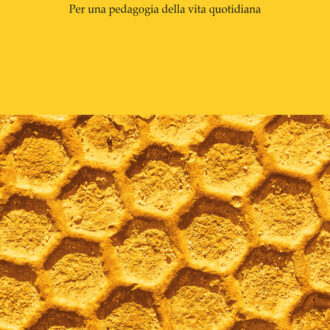ABSTRACT
Alla fine degli anni ’50, quando il mondo letterario italiano si divideva fra «gattopardisti» e «antigattopardisti», e la critica di sinistra si ostinava a considerare il romanzo lampedusiano l’opera di un aristocratico reazionario, Louis Aragon, la cui appartenenza al partito comunista francese era ben nota, dedicò due articoli, molto lusinghieri, al Gattopardo sulle pagine delle «Lettres françaises» (Un grand fauve se lève sur la littérature: «Le guépard», dicembre 1959) e «Le Guépard» et «La Chartreuse», febbraio 1960)
L’obiettivo di questo saggio è mostrare come lo scrittore francese, difendendo il «caso Lampedusa», abbia voluto difendere nello stesso tempo il probabile futuro «caso Aragon». Infatti, nel 1958, era stata pubblicata La Semaine Sainte che segnava il ritorno e la consacrazione di Aragon nel campo letterario extra-communista. Il dirompente successo del libro, sia di critica che di pubblico, si rivelava però imbarazzante per lo scrittore: la ricezione entusiasta del romanzo da parte della critica di destra non era forse il segno di un certo allontanamento dell’autore dal PCF? La mia ipotesi è che Aragon, criticando la lettura ideologica alla quale era sottoposto Il Gattopardo in Italia durante quegli anni, abbia cercato di difendere e di legittimare il proprio romanzo. Si vedrà che, se il raffronto del Gattopardo con La Semaine Sainte permette da un lato d’individuare alcune delle ragioni per le quali lo scrittore francese prese la difesa del romanzo tomasiano e di rivelare d’altro lato una prossimità insospettata tra la visione del tempo e della storia di Aragon e quella di Tomasi, esso consente anche, e forse soprattutto, di sottolineare i limiti della lettura aperta e a-ideologica che l’autore della Semaine Sainte pretendeva di fare del Gattopardo.
At the end of the 1950s, at a time when the Italian literary world was divided between gattopardisti and antigattopardisti and the intellectuals from the left stubbornly held the Lampedusian novel as the work of an aristocratic reactionary, Louis Aragon, whose membership to the French Communist Party (PCF) was well known, devoted two laudatory review essays to Il Gattopardo in Les Lettres Françaises («Un grand fauve se lève sur la littérature: ‘Le guépard’», December 1959) and Le Guépard et La Chartreuse, February 1960).
In this paper, I will aim to show how the French writer, while vindicating Lampedusa, was actually taking steps to preemptively repel potential critics that might come to be addressed to him. The fact is that, in 1958, Aragon had won acclaim for La Semaine sainte published that same year, well beyond the boundaries of the communist readership. This success, critical as well as popular, show to be embarrassing for Aragon: couldn’t this wide and large enthusiastic reception, coming also from the right, be understood as a sign that Aragon had abandoned some of his previous commitments and political beliefs, and parted to some extent from the PCF? My contention is that Aragon has tried and deflected such an interpretation by underlying the limits of the ideological reading of Il Gattopardo, which was dominant in Italy in those days. It will furthermore appear that, if the mirroring of Il Gattopardo and of La Semaine sainte sheds light on the reasons Aragon stood up for Lampedusa, it reveals also an unexpected proximity in their understanding of time and history. Last but not least, it will show the limits of the open and non-ideological reading Aragon claimed to have given of Lampedusa’s opus.












Recensioni
Ancora non ci sono recensioni.